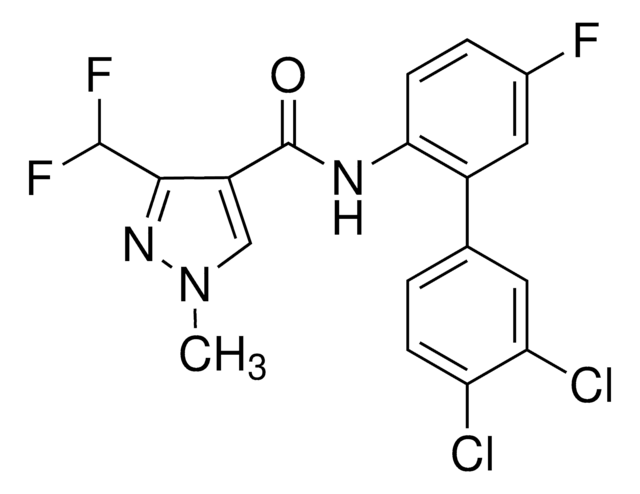850528P
Avanti
Mal(11.2)
tridecan-3-yloxy-β-D-maltoside, powder
Synonym(s):
3-tridecyl-Β-D-maltopyranoside
Sign Into View Organizational & Contract Pricing
All Photos(2)
About This Item
Empirical Formula (Hill Notation):
C25H48O11
CAS Number:
Molecular Weight:
524.64
UNSPSC Code:
12161902
NACRES:
NA.25
Recommended Products
assay
>99% (TLC)
form
powder
packaging
pkg of 1 × 1 g (850528P-1g)
manufacturer/tradename
Avanti Research™ - A Croda Brand 850528P
shipped in
dry ice
storage temp.
−20°C
SMILES string
OC[C@H]1O[C@@H](OC(CC)CCCCCCCCCC)[C@H](O)[C@@H](O)[C@@H]1O[C@@H]2[C@H](O)[C@@H](O)[C@H](O)[C@@H](CO)O2
General description
This new class of detergents contain a short, branched alkyl chain at the interface between the polar head and the apolar tail. This design mimics the second aliphatic chain of lipid molecules and reduces water penetration, thereby increasing the hydrophobicity within the interior of the micelle. A detergent architecture of this style allows formation of smaller, more compact micelles which provides improved performance in the stabilization and crystallization of integral membrane proteins.
Packaging
20 mL Clear Glass Screw Cap Vial (850528P-1g)
Legal Information
Avanti Research is a trademark of Avanti Polar Lipids, LLC
Storage Class
11 - Combustible Solids
Certificates of Analysis (COA)
Search for Certificates of Analysis (COA) by entering the products Lot/Batch Number. Lot and Batch Numbers can be found on a product’s label following the words ‘Lot’ or ‘Batch’.
Already Own This Product?
Find documentation for the products that you have recently purchased in the Document Library.
Xiaoxu Jiang et al.
Proceedings of the National Academy of Sciences of the United States of America, 109(12), E698-E704 (2012-02-23)
LacY mutant Cys154 → Gly exhibits a periplasmic-closed crystal structure identical to the WT, but is periplasmic-open in the membrane. The mutant hardly catalyzes transport, but binds galactosides from either side of the membrane with the same affinity and is
Wen-Xu Hong et al.
Langmuir : the ACS journal of surfaces and colloids, 26(11), 8690-8696 (2010-03-18)
A challenging requirement for structural studies of integral membrane proteins (IMPs) is the use of amphiphiles that replicate the hydrophobic environment of membranes. Progress has been impeded by the limited number of useful detergents and the need for a deeper
Our team of scientists has experience in all areas of research including Life Science, Material Science, Chemical Synthesis, Chromatography, Analytical and many others.
Contact Technical Service



